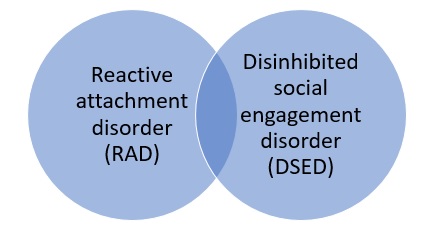
Research and studies show that children who have not received love from their parents apart from just the traditional care, develop poor immune systems along with other physical issues. These can be visual processing disorders, definite children with learning disorders, problems with social communication and so on. They also face trouble sleeping and gradually develop depression and learning disabilities along with even the withdrawal signs of autism.
Numerous studies gave evidence that family variables are connected to this ADHD and LD and parenting styles play a significant role in its difficulty. Some other studies examined the strong association between a child’s ADHD with certain parenting features such as higher levels of stress, marital disharmony, psychiatric disorders, and controlling parenting style. Moreover, maternal anxiety and specific parenting practices such as over-protectiveness and lack of positive parenting were associated with children’s anxiety symptoms.
Investigational Findings on Attachment Disorders in Children & Parental Detachment
Certainly, bringing up children as well as adolescents who show hyperactive, inattentive, and impulsive behaviors can carry serious challenges for parents too. They experience more parenting stress than others. Similarly, a child’s behavioral difficulties also negatively impact the parents’ marital as well as social lives. Eventually, it increases the risk of negative parental attitudes toward the child.
What are attachment disorders?
These are the specific conditions that can grow in young kids who have issues in establishing a deep emotional connection. It is recognized as the attachment bond, it can be with their parent or principal caregiver. These are particularly common in young kids who have been disturbed, abused, rebounded around in foster care, lived in orphanages, or disconnected from their primary caregiver after starting a bond.
There are 2 types of attachment disorders –

RAD can make it problematic to connect with others. It can also make it challenging for managing emotions. With time, this will result in a lack of faith and self-worth, a fear of getting close to anybody, annoyance, and a need to be in control. A child with RAD doen’t react or respond even though the child is already aware of the fact of what’s going on around them.
DSED children don’t seem to prefer their parents over other people, even strangers. Kids with DSED frequently have trouble creating meaningful connections with others. They can appear chronically anxious as well.
Alarming Signs of An Attachment Disorder
An infant may have attachment problems if they:
Though it is never too late to treat attachment issues certainly early intervention will help in helping the child a lot!
Apps for Students with Special Needs
Please note that the early symptoms of attachment disorders are alike to the early symptoms of other special needs such as ADHD and autism.
What are the possible causes of attachment disorders?
Attachment disorders can happen because of several reasons –
The Bottom Line
We understand that parenting a child with attachment disorder can be gruelling, frustrating, and emotionally trying. However, with the right care, support, technique and effort you will be able to support them better. SEN courses for parents are something that is worth considering.
Get In Touch
UK – Registered OfficeAsian College Of Teachers Ltd (UK)
27, Old Gloucester Street, London – WC1N 3AX, UK
UK Toll Free: 0-808-189-1203
www.asiancollegeofteachers.co.uk
All SEN Courses are designed, developed and created by Asian College of Teachers Ltd, United Kingdom. These courses are certified by CPD Certification Service UK and endorsed by NCC Education, UK, and Short Courses from CACHE, UK through Laser Learning UK.
Asian College of Teachers (ACT) undertakes a continuous review of its teacher training courses to ensure imparting high quality education. However, there might be circumstances outside of ACT’s control which might affect its stakeholders like if you are planning to teach in a different country, applying for a teaching license, pursuing higher studies or trying to get the certificate approved by the Ministry of Education (MoE) of a particular country then you can do so with the certificate issued by Asian College of Teachers (ACT). However, each country’s Ministry of Education (MoE) or educational bodies set certain standards that are indispensable for the pursuit of higher studies or teaching in schools in that country. So it can be a possibility that you may be able to use the certificate for higher studies or teaching purposes in one country and not in another. Therefore, we strongly recommend that you investigate thoroughly and check with the relevant authorities regarding the acceptance of the certificate issued by us before you enrol on a particular course. ACT strives to offer high-quality education and its certificates can be valuable for various purposes internationally, but still it is crucial for individuals to verify the specific recognition of the certificate in the country they intend to use it, especially for formal education or professional licensing purposes. This approach ensures that the stakeholders make informed decisions regarding their educational and career paths.
© 2026 Asian College of Teachers. All Rights Reserved. Asian College Of Teachers is a trading brand of TTA Training Pvt. Ltd (India) - CIN U80902WB2016PTC215839, Asia Teachers Training Co., Ltd (Thailand) - Registration No. 0105558193360, Asian College Of Teachers Ltd (UK) - Company Number 9939942 & Asian College Of Teachers LLC, (USA) - Federal Tax Identification Number 30-1261596
Designed by kreativewebtech